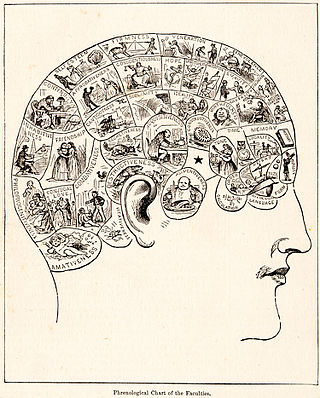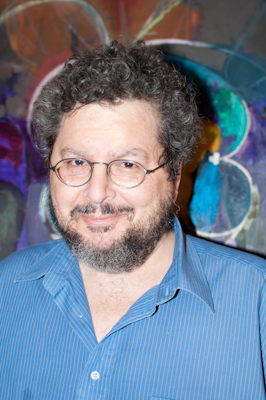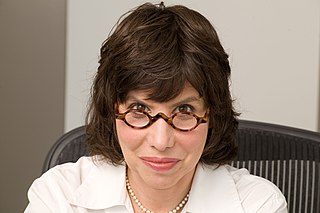Related Research Articles
Junk science is spurious or fraudulent scientific data, research, or analysis. The concept is often invoked in political and legal contexts where facts and scientific results have a great amount of weight in making a determination. It usually conveys a pejorative connotation that the research has been untowardly driven by political, ideological, financial, or otherwise unscientific motives.

Pseudoscience consists of statements, beliefs, or practices that claim to be both scientific and factual but are incompatible with the scientific method. Pseudoscience is often characterized by contradictory, exaggerated or unfalsifiable claims; reliance on confirmation bias rather than rigorous attempts at refutation; lack of openness to evaluation by other experts; absence of systematic practices when developing hypotheses; and continued adherence long after the pseudoscientific hypotheses have been experimentally discredited. It is not the same as junk science.
Phillip E. Johnson was an American legal scholar who was the Jefferson E. Peyser Professor of Law at the University of California, Berkeley. He was an opponent of evolutionary science, co-founder of the Discovery Institute's Center for Science and Culture (CSC), and one of the co-founders of the intelligent design movement, along with William Dembski and Michael Behe. Johnson described himself as "in a sense the father of the intelligent design movement".
Doubt is a mental state in which the mind remains suspended between two or more contradictory propositions, and is uncertain about them. Doubt on an emotional level is indecision between belief and disbelief. It may involve uncertainty, distrust or lack of conviction on certain facts, actions, motives, or decisions. Doubt can result in delaying or rejecting relevant action out of concern for mistakes or missed opportunities.

David Hillel Gelernter is an American computer scientist, artist, and writer. He is a professor of computer science at Yale University.
Functional illiteracy consists of reading and writing skills that are inadequate "to manage daily living and employment tasks that require reading skills beyond a basic level". Those who read and write only in a language other than the predominant language of their environs may also be considered functionally illiterate. Functional illiteracy is contrasted with illiteracy in the strict sense, meaning the inability to read or write complete, correctly spelled sentences in any language.

Jennifer Michael Hecht is a teacher, author, poet, historian, and philosopher. She was an associate professor of history at Nassau Community College (1994–2007) and most recently taught at The New School in New York City.

Wilk v. American Medical Association, 895 F.2d 352, was a federal antitrust suit brought against the American Medical Association (AMA) and 10 co-defendants by chiropractor Chester A. Wilk, DC, and four co-plaintiffs. It resulted in a ruling against the AMA.

Jewish views on evolution includes a continuum of views about the theory of evolution, experimental evolution, the origin of life, the age of the universe, and theistic evolution. Today, many Jewish people accept the theory of evolution and do not see it as incompatible with traditional Judaism, reflecting the emphasis of prominent rabbis such as the Vilna Gaon and Maimonides on the ethical rather than factual significance of scripture.

Christopher Cole Mooney is an American journalist and author of four books including The Republican War on Science (2005). Mooney's writing focuses on subjects such as climate change denialism and creationism in public schools, and he has been described as "one of the few journalists in the country who specialize in the now dangerous intersection of science and politics." In 2020 he was awarded a Pulitzer Prize for a series of articles on global warming published in The Washington Post.
Lynne McTaggart is an American alternative medicine author, publisher, journalist, lecturer and activist. She is the author of six books, including The Field, The Intention Experiment and The Power of 8, and is the co-creator of the alternative medicine magazine What Doctors Don't Tell You. According to her author profile, she is a spokesperson "on consciousness, the new physics, and the practices of conventional and alternative medicine."

Naomi Oreskes is an American historian of science. She became Professor of the History of Science and Affiliated Professor of Earth and Planetary Sciences at Harvard University in 2013, after 15 years as Professor of History and Science Studies at the University of California, San Diego.
The reaction of Jewish leaders and organizations to intelligent design has been primarily concerned with responding to proposals to include intelligent design in public school curricula as a rival scientific hypothesis to modern evolutionary theory.
Aliteracy is the state of being able to read but being uninterested in doing so. This phenomenon has been reported on as a problem occurring separately from illiteracy, which is more common in the developing world, while aliteracy is primarily a problem in the developed world. In 2002, John Ramsey defined aliteracy as a loss of a reading habit usually since reading is slow and frustrating for the reader.

Alison Gopnik is an American professor of psychology and affiliate professor of philosophy at the University of California, Berkeley. She is known for her work in the areas of cognitive and language development, specializing in the effect of language on thought, the development of a theory of mind, and causal learning. Her writing on psychology and cognitive science has appeared in Science, Scientific American, The Times Literary Supplement, The New York Review of Books, The New York Times, New Scientist, Slate and others. Her body of work also includes four books and over 100 journal articles.
The Climatic Research Unit email controversy began in November 2009 with the hacking of a server at the Climatic Research Unit (CRU) at the University of East Anglia (UEA) by an external attacker, copying thousands of emails and computer files to various internet locations several weeks before the Copenhagen Summit on climate change.
Scientocracy is the practice of basing public policies on science.
Watts Up With That? (WUWT) is a blog promoting climate change denial that was created by Anthony Watts in 2006.

Unscientific America: How Scientific Illiteracy Threatens Our Future is a nonfiction book by Chris Mooney and Sheril Kirshenbaum. It was a New York Times best seller. In the book, the authors tackle the problem of scientific illiteracy in America. The authors criticize scientists for talking down to the misinformed and insulting the religious while calling for more friendly and magnanimous science advocates. They also blame the New Atheist movement, the creation–evolution controversy, the entertainment industry, the media, and science skeptics.
Claudia Dreifus is an American journalist, educator and lecturer, producer of the weekly feature “Conversation with…” of the Science Section of The New York Times, and known for her interviews with leading figures in world politics and science. She is adjunct associate professor of international affairs and media at the School of International and Public Affairs (SIPA) of Columbia University.
References
- ↑ Unscientific America: How Scientific Illiteracy Threatens Our Future. 2009.
- ↑ Berman, Daphna (May–June 2011). "What Does It Mean To Be Jewish Today? What Do Jews Bring To The World?". Moment .